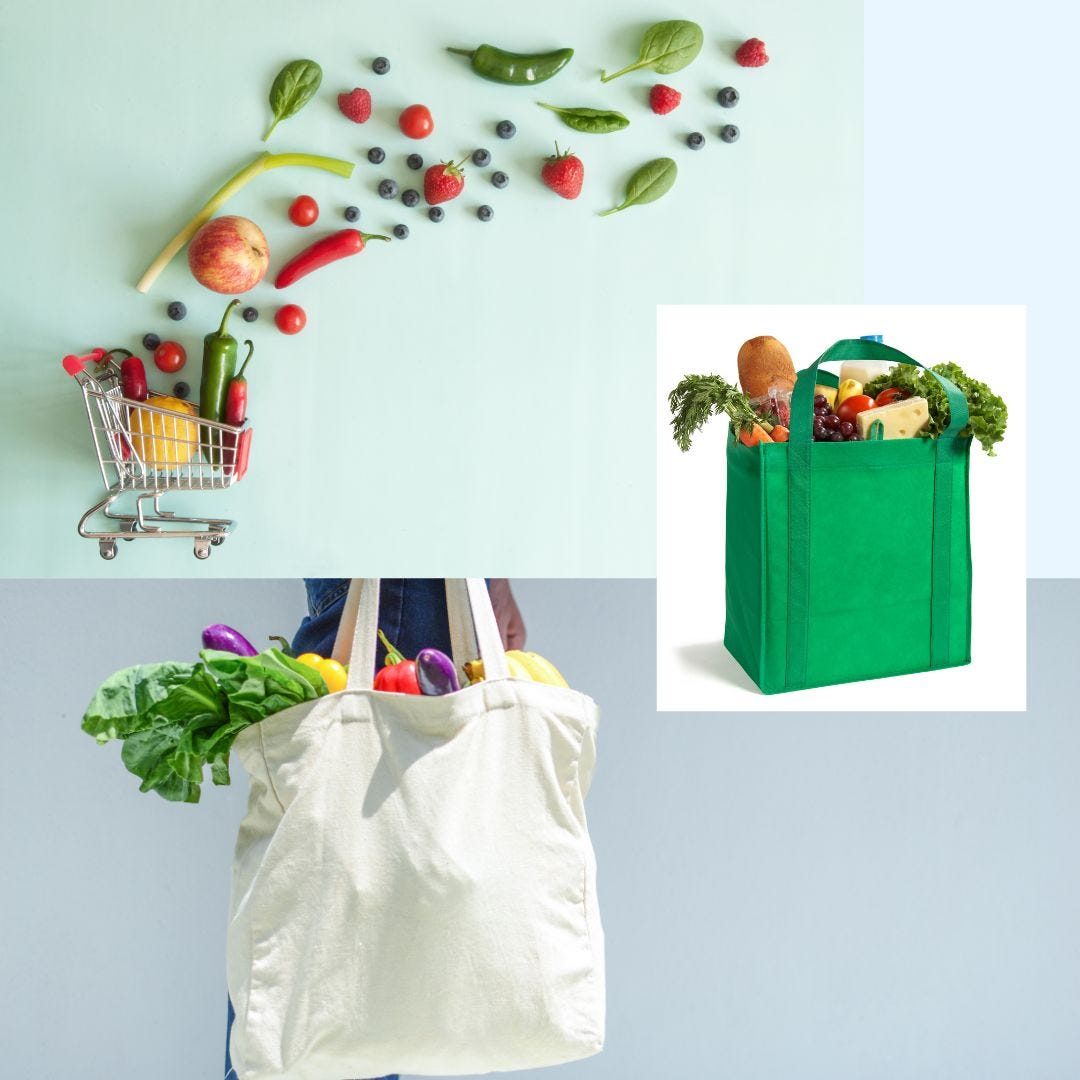Powerful (and Empowering) Solutions to the High Cost of Food
You have more power than you know. Time to use it!
It happens pretty much every time I shop for groceries. I pick up a very small selection of foods I am running low on, and my grocery bill is over $75. How does this keep happening? I don’t buy meat, chicken, or eggs because I grow my own. Yikes. Food bills feel out of control.
The trends are very disturbing. Canada’s Food Price Report last year (2022) predicted that food prices would increase 5 to 7 % in 2022 Instead, 2022 saw price increases over 10%. The 2023 prediction is that all provinces will see a 7% increase, maybe more.
Things are no better in the United States where food price increases remain above historic averages and are predicted to continue to rise in 2023. All the while food corporations are raking in record profits, with 54% of food price increases between 2021 and 2022 being attributed to profit, compared to a mere 11% of the price in past decades. This is simply not sustainable.
It reminds me of a piece I just read by @jaredabrock in Surviving Tomorrow about how Universal Basic Income is doomed to fail because of the economic exploitation happening globally. He argues that any income increases will just be rapidly sucked up into the profit margins of businesses, leaving people no better off than where they are right now without UBI(but he also talks of alternatives too).
I think we are in this exact situation with food.
Because let’s face it. Everyone has to eat. That means there are a lot of captive audiences out there where buying food is simply the easiest way forward, despite rising costs. Businesses are quick to profit from limited food supplies that may be created by supply chain disruptions, labor shortages, rising fuel costs, and extreme weather. The money funnels straight up to shareholders while communities bear the brunt with mental and physical health issues, increasing demands on food banks, food insecurity, substance abuse and other challenges that arise when people’s basic needs are not met.
Unlike the situation with rental housing, mortgages, utilities and transportation, all of which siphon off high levels of profit without offering much recourse, our food system does have some loop holes that the average person can exploit in the face of rising prices.

You Have The Power. Use It.
The escalating cost of food provides some strong motivation to make changes in the system. Here are the most important ways in which you can influence the price of food that you experience:
1) Vote with your dollars
Food is highly perishable (or at least it should be if it’s going to support your bodily needs – I will circle back to this concept of living food another time). If you suddenly stopped buying food at the grocery store, then it will either have to be thrown away or the price has to be lowered to move it off the shelf.
There are a few ways to achieve this kind of pressure:
You can stop buying overpriced products. That sends a pretty clear message to food companies.
You can stop buying products that are the same price, but that now have less food in the package. This “shrinkflation” is just more deception on the part of food companies to increase their profits. Pay attention to package sizes as well as price, and make clear decisions about what you are willing to accept.
You can stop buying from chain grocery stores and instead seek out alternative vendors:
Grocery co-ops keep the profits within the community and work to protect food selection. If one doesn’t exist in your area (Co op Finder), start one!
Farmer’s Markets offer direct access to local or regional producers, by-passing corporate profits.
Community Supported Agriculture systems, such as weekly deliveries of a box of seasonal food, is another way to work directly with local growers.
Buy your eggs locally, always! Chickens can live pretty much in every place humans live. There is no reason to pack and store and ship crates of eggs anywhere. Eggs should always be locally raised (in my opinion).
Order meat and fish directly from the farmers and fishermen, or through independent butcher shops and mongers.
You can buy less ultra processed foods, and learn fast, easy recipes using whole foods and minimally processed goods. That keeps the profit right where you want it – in your own pocket.
2) Make Friends With Nature
There are many food opportunities that relate to making nature your friend around meals.
Get to know how real food looks and grows, fresh out of the field – knobs, bumps, blemishes, bruises, a few bugs – you’ve got this. Nature is amazing! Stop focusing on “runway model” style food beauty, and embrace real life food with its edginess and freshness.

Find ways to claim those cheaper alternatives. Everything doesn’t need to be uniform or supersized.
Do you know, for example, that every young hen (pullet) produces small eggs when they start laying and big jumbo eggs come from older, more mature hens. Anyone who has ever sold eggs faces this same issue of what to do with these small eggs. Next time you see those (if you are buying direct) show your knowledge and appreciation for new hens coming online to serve you better in the future.
You will be amazed at how many of these types of “off size” opportunities exist out there when you start exploring real food. Make a deal on small eggs, undersized apples, cull fruit, overripe bananas. There are savings for you, and it makes the best use of the food being grown. Every grower has some kind of “off size” issue. You can create a win-win situation so easily by using up that food.
Be part of the natural renewal cycle by reducing food waste and composting.
Either eat leftovers, or right-size your meals better to avoid having too much food sitting around after meals.
Use up food scraps in soups and stews. Dehydrate extras for fast additions to meals. Can or freeze the extras for a fast meal later. I freeze one and two cup portions of extra soup in ziplock bags so they are easy to grab and pop in the microwave when I’m in a hurry.
Feed scraps to your own chickens or donate those scraps to someone with hens. I have neighbors who just throw their kitchen scraps into the freezer for me, and bring it by once a week when they pick up eggs. A laying hen can easily eat 1.5 lbs of food scraps per week and turn that waste into fresh eggs.
Food scraps (not including meat and dairy) can be turned into a valuable soil amendment through composting. Or if you lack the space for that, worm bins and even indoor composting machines are good alternatives that keep food wastes out of landfills and cycle nutrients back to the soil and plants.
3) Grow Your Own
Perhaps the crown jewel of food cost savings, growing your own food can take a bite of grocery bills.
Big or small, food can grow in all kinds of places and in all kinds of ways. Counter top sprouters, pots, balconies, backyard, rooftops, out in fields, or in vertical towers. There are as many ways to grow some food as there are creative people out there.
Access heirloom seeds through seed libraries and gardening clubs because these are the plants from which you can save your own seeds and grow them year after year for free.
You can focus on food staples like potatoes, onions and squash, or focus on expensive foods like peppers, asparagus or artichokes. Grow what both makes you happy and makes a difference to your bottom line or your food security.
Plant a food-producing tree or shrub. Take that even further with an entire food forest scaled to whatever space you have.
Raise your own meat, eggs, poultry and dairy. Small scale livestock is a great way to both diversify your home-grown diet and create better ecological cycling of carbon, nutrients and wastes.
Did you know that just 3 good laying hens can provide 12 eggs per week?
Irish Dexter cattle were specifically bred to provide beef and milk opportunities (dual purpose) for small lot farms. I raise a small herd at Rose Hill Farm on 16 acres. The cows that I sell pay for the winter supply of hay to feed the rest.
Ducks are great multi-purpose birds that provide meat and eggs, and do an amazing job in the pest management department. They are crazy for bugs, and will even gobble up small mice and other rodents.

Silver Appleyard Ducks at Rose Hill Farm (Source: Sue Senger)
This Only Changes If We Make It Change
High food prices will be here to stay unless we get serious about changing the for-profit food system into something more aligned with providing high quality nutrition for the people of the world.
Pick one or two ideas off the list and see if you can bring your food bill down. Or let me know in the comments if you have other strategies that work for you.




